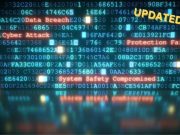
- This event has passed.
Virtual Smart Buildings Week
September 14, 2020 @ 12:00 pm - September 18, 2020 @ 1:00 pm

Monday, September 14th, 2020, 12:00 – 1:00 PM: Smart Buildings: Using Data and Analytics to Improve Performance
This session brings together two leading local smart service providers and two facility directors who have real world experience bringing smart solutions to their buildings. Designing for optimal performance is no guarantee that it will happen. The ability to acquire system performance data is no guarantee that the data will trigger operational improvements. In these two case studies, buildings that should have been “top of their game” needed a new approach. Attendees will hear how ATS Automation and DB Engineering intervened to help facility directors collect relevant data from installed building systems, use analytical tools to provide insights into performance problems, and then – most importantly – help those facilities take action. The results speak for themselves. Improved energy performance that is persisting over time.
Moderator: Stan Price, Smart Buildings Center
Panelists: Pete Segall, ATS Automation; Trevor Sodorff, DB Engineering; Tim Wingert, CBRE; Keith Berkoben, Google
Tuesday, September 15th, 2020, 12:00 – 1:00 PM: Smart Buildings: Grid Enabled (and Efficient) Buildings
Grid enabled buildings (GEB) are equipped with technologies for load management that can respond to dynamic conditions in the electric grid. GEBs are generally more efficient (HVAC, lighting, envelope, appliances), connected (hardware and software), smart (data and analytics), and flexible (loads, generation, storage). In an environment where hardware is increasingly attractively priced and a plethora of data is available, building owners are able to provide a significant benefit to a utility’s growing portfolio of resources and play a creative role in meeting its resource capacity needs in real time and for the long term. GEBs also offer the owner the additional value proposition of taking more control of their utility costs.
An expert, national panel will describe the key features of GEBs and outline the value streams that accrue to both the building owner and the serving utility in creating this grid enabled relationship. The panel will discuss both the technology required to create a two-way communication condition as well as the cost and benefits to all the parties in making GEBs a reality.
Moderators: Ben Levie, Seattle City Light; Mark Lenssen, Puget Sound Energy
Panelists: Alexi Miller, New Buildings Institute; Cara Carmichael, Rocky Mountain Institute; Mark Frankel, Ecotope; Mary Ann Piette, Lawrence Berkeley Laboratory
Wednesday, September 16th, 2020, 12:00 – 1:00 PM: Smart Buildings: Achieving Persistent Operational Performance
Facility energy performance and operations are often in direct conflict. It’s tough to hear, but the scales are not balanced for building owners or operators. Social pressure, building codes and new legislation are pushing EUI targets lower and lower. Advanced energy systems and smart building controls tease easy answers during initial design and construction, but the harsh reality is that designing an efficient building does not translate to operations success and often only adds to reactive practices, deferred maintenance and risk. In most cases, operators are not prepared to take on complicated building systems and new-to-them technologies. With inadequate training or resources, overtaxed staff override system settings to simply make it work. The result inadvertently drives up energy consumption and negates all efforts to optimize energy performance during design and construction while reducing asset life and introducing unnecessary risks.
The transition to smart and sustainable operations offers a best practice that balances the scales between energy expectations and operational realities. Panelists will outline proven approaches on actual projects that bridge design, build, train, optimize to ensure current energy requirements are effective and met.
Moderator: Ric Cochrane, McKinstry
Panelists: Mike Kowalick, South Landing EcoDistrict; Roy Buchert, Kaiser Permanente; Norm Menter, University of Washington
Friday, September 18th, 2020, 12:00 – 1:00 PM: Smart Buildings: Creating Intelligent Spaces
The Internet of Things (IoT) is transforming the world, including the built environment. This transformation is already underway leading to improved organizational productivity, better space utilization, and more efficient and healthier buildings. To make this transformation successful, it’s important to both understand the technology and practices as well as the cross-organizational nature of adopting smart projects. Microsoft has keen insight here based on its own adoption of smart technologies at their buildings as well as through close working relationships with its partner ecosystem. Microsoft will share a number of key considerations that can help building owners and operators make a successful transformation to buildings that are more agile, flexible, efficient, and productive.
Speaker: Spyros Sakellariadis, Microsoft
*All times in Pacific Time
After you register, we will e-mail you the Zoom virtual meeting details for the session(s) you selected.
Questions? Contact [email protected].















